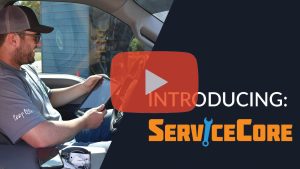The Ultimate Guide to Section 179 And Bonus Depreciation For Waste Businesses
Although this article is intended to help portable sanitation business owners with their end-of-year taxes, it is not intended to replace the advice of professional legal counsel. If you have any questions or concerns about the licitness of anything outlined below, please consult with your tax advisor.
Finding the time to implement software for your liquid waste or roll-off business can be difficult. Even when the busy season is over, you’re still too busy.
So when is the right time to buy and implement software? Well, the answer is NOW.
Here’s why:
You Can Deduct The Cost of Software & Equipment From Your Waste Business’ Taxes
Let me introduce Section 179. It’s a code that applies to tangible personal property. Section 179 allows business owners to deduct the full purchase price of software & other qualifying equipment, like trucks, from their waste business throughout the tax year. So, if you choose to purchase software for your waste business, you can get a tax write-off.
Why does this exist? Section 179 is meant to encourage small businesses to make decisions that allow them to grow their business and in other words, help them grow their income. By making these investments, businesses can better position themselves for long-term success.
Examples Of Tax Deductible Items Under Section 179 And Bonus Depreciation
The tax law permits businesses to deduct ordinary and necessary expenses that directly contribute to generating revenue or maintaining operations. There are many other expenses your waste business may be able to deduct and it is important to make sure you understand them. Here are some examples:
There are two types of expenses:
- Ordinary Advertising & Marketing expenses are tax deductible. An ordinary expense is a cost that is common and accepted by the industry you are in.
- Necessary expenses are costs that are helpful for your business to gain income. These are also tax deductible.
Here are examples of ordinary/necessary expenses that are typically deductible:
- Any reasonable advertising costs that are directly related to your waste business.
- Example: Purchasing ServiceCore Digital Marketing to help your waste business improve its online presence & bring in more leads.
- Expenses for the cost of goodwill advertising that helps put the company name in front of the public & relates to gaining business in the future.
- Example: The cost you spend on advertising that gets people to donate or contribute money to a charity foundation.
- Expenses related to business promotion, such as sponsoring community events or advertising campaigns that directly showcase your services.
- Example: You can sponsor a community block party to get awareness for your business and bring people together and deduct it from your taxes.
- Acquiring New Equipment
- Example: Buy new tablets and/or phones for your drivers to utilize software in their trucks, invest in inventory & add new types of inventory to grow your business, service your trucks that you’ve been holding off on fixing, etc.
The easiest way to determine if your purchase qualifies for Section 179 deduction is this:
| Yes | No |
| Stand-alone equipment such as trucks, units, software, and any other type of equipment for your waste business | Real estate-related expenses such as the purchase of land |
- Most items that do qualify under section 179 are stand-alone equipment items such as trucks, units, software, and any other types of equipment for your waste business.
- Items that do not qualify under section 179 are the purchases of land and land improvements. Real estate-related expenses do not qualify under section 179.
How Does Writing Off Software Work With Section 179?
Let’s say you have monthly payments for your software agreement. Depending on how the software is acquired—whether purchased outright or leased—you may be able to deduct the costs as either a Section 179 expense or a regular business expense.
You can claim software expenses at year’s end when filing your taxes along with any other business deductions as long as you meet these requirements for 2025:
- The software must be bought or financed through a qualifying loan or lease.
- It must be used in your business, not solely for income production like rentals.
- It should have a clear useful life and last more than a year.
- In 2025, you can deduct up to $1,250,000 for qualifying equipment purchases, but this amount starts to decrease if your total purchases go over $3,130,000.
As inflation fluctuates and increases each year, you will see changes in these limitations. There are specific requirements for your software to meet in order for you to be able to deduct it. You can read more about the qualifications here.
Long story short, if you purchase a tool like ServiceCore and meet Section 179 qualifications, you can deduct the expense when you file your taxes!
What Is The Difference Between Section 179 And Bonus Depreciation?
The key difference is that Section 179 has monetary limits, while bonus depreciation allows you to write off a percentage of qualifying purchases. In 2025, you can deduct 40% of eligible assets. This means you can deduct 40% of the cost of qualifying new purchases—like trucks, portable restrooms, or software—within the 2025 tax year.
In 2026, this number will drop down to 20%. So, right now is a fantastic time to purchase new equipment and software for your waste business to take full advantage of these savings. Not all equipment may qualify, so it’s important to consult your accountant or tax professional before making any purchase decisions.
To qualify for bonus depreciation, you must have taxable income. Both section 179 and Bonus Depreciation have huge benefits for businesses and you don’t want to miss out on them!
Ready to invest in your business? Demo ServiceCore today!


